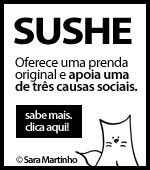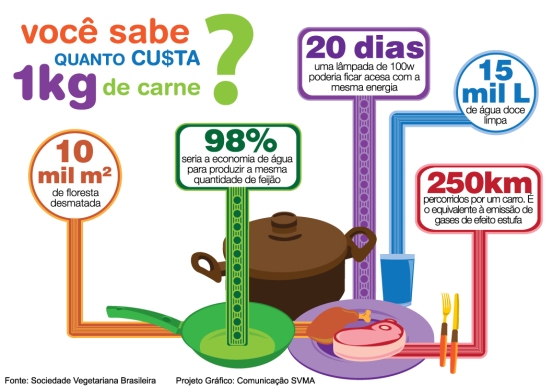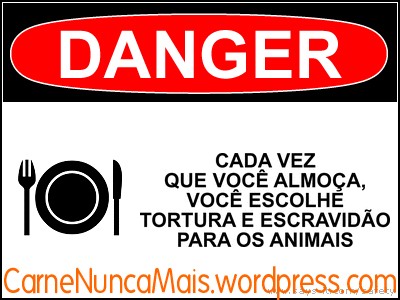Algumas rações não são testadas directamente em animais, mas fazem parte de empresas que usam testes em animais para a maior parte dos seus produtos.
Infelizmente, ainda não existem boas alternativas de rações que possam impedir a compra das rações de empresas que testam em animais.
As rações vegetarianas e veganas não suprem todas as necessidades nutricionais dos animais e podem provocar alguns problemas ao nível renal e do trato urinário, levando a que se tivesse de complementar este tipo de alimentação com alimentos “vivos”, como a carne e o peixe cozidos em casa.
Basicamente, os nossos animais domésticos, cães e gatos, são de espécies carnívoras, pelo que não devemos tentar transformá-los à nossa semelhança, em seres vegetarianos ou omnívoros.
São várias as espécies que habitam o nosso mundo que são carnívoras, e precisamos de manter a noção que existem animais com necessidades e hábitos nutricionais diferentes dos do homem. Por isso, nem sempre é possível, ou mesmo aconselhável, a bem da saúde dos animais, tentar transformá-los naquilo que não são. É, antes de mais, uma questão de respeito pela sua identidade e pela sua espécie.
A questão que é fundamental não é o facto de os animais serem carnívoros e serem alimentados de outros animais, mas sim o facto de se fazerem experiências e testes em seres vivos.
A questão fundamental não é se as rações são compostas com produtos de origem animal, mas sim se houve sofrimento de outros animais envolvido no seu desenvolvimento e fabrico.
É um factor positivo haver alertas, indignação e boicotes às empresas de produtos para animais que fazem testes de laboratório em outros animais. Primeiro, porque é desnecessário, havendo muitas alternativas aos testes em animais. Depois, porque é um contra-senso testar em animais produtos destinados aos próprios animais, ou destinados a qualquer fim, evidentemente. Por último, este tipo de indignação e boicotes “desperta” as empresas e a sua consciência empresarial (vulgo, possibilidade de lhes mexerem nos lucros) levando a que abandonem a experimentação animal a bem de conservarem os consumidores.
(Os nomes a vermelho são produtos vulgarmente encontrados em Portugal)
- Colgate-Palmolive: Hills Pet Nutrition – Hills Science Diet
- Masterfoods/Mars Inc.: Pedigree, Bounce, Cesar, Chappie, Frolic, James Wellbeloved, Katkins,KiteKat, Pal, Pedigree Chum, Royal Canin, Sheba, Techni-cal (EUA e Canadá), Whiskas (também comida para coelho Thomas e comida para pássaros Trill).
- Nestlé – Purina/ Friskies: Purina, Friskies, Alpo, Bonio, Felix, Go Cat, Gourmet, Omega Complete, Proplan, Spillers, Vital Balance, Winalot
- Procter&Gamble: IAMS, Eukanuba
A IAMS, da multinacional Procter&Gamble, foi alvo de uma violenta onda de contestação quando se descobriu que as rações que fabricava eram testadas em animais, com experiências horrendas, que envolviam a indução propositada de falência renal a cães e gatos saudáveis, bem como outras atrocidades. Muitos animais saudáveis foram submetidos a cirurgias perfeitamente desnecessárias e posteriormente abatidos.
TEXTO ORIGINAL DA NOTÍCIA DO SUNDAY EXPRESS:
Iams
 Pet Food Cruelty Exposed
Pet Food Cruelty ExposedSUNDAY EXPRESS
by Lucy Johnson
A major sponsor of Crufts dog show has carried out horrific experiments on animals, it can be revealed today. Thousands of weekend holiday visitors to the famous show at the NEC in Birmingham will be shocked to learn the truth about IAMS, a pet food made by Procter and Gamble.
The Sunday Express has uncovered damning evidence of gruesome tests performed on dogs and cats during the development of the product, which is being heavily promoted at the event. IAMS has also been backed by the RSPCA - but after being told of our findings the animal welfare charity said it would sever all ties.
Last night Crufts organisers launched their own investigation and were considering removing a stand sponsored by Procter and Gamble. In supermarkets and pet shops across Britain, IAMS is being marketed as a breakthrough in animal health care and nutrition.
But our investigation as revealed that hundreds of animals suffered incredible agony in experiments designed to perfect IAMS. A huge dossier of research papers exposes how scientists deliberately induced kidney failure and other conditions in dogs and cats.
Some experiments involved performing operations on healthy animals which were later killed.
Last night animal activists and MPs condemned the research.
Campaigner and comedy writer Carla Lane said:
"It is horrifying to think people are buying pet food that involves so much experimentation. You don't have to harm animals to find out what's good for them to eat."
And Liberal Democrat MP Norman Baker said:
"It's ironic to say the least that a company which purports to care for animal is conducting abhorrent animal experiments behind closed doors. Perhaps they should list their experiments on their labels and then see how much they sell."
Animal rights organisation Uncaged Campaigns is to stage a protest at Crufts, distributing leaflets and waving banners highlighting "the suffering behind the science" and urging a boycott. Director Dan Lyonssaid:
"Even the people representing IAMS at the show are unlikely to know they are promoting a company that inflicts pain and death on animals. Once they see the evidence they will be as appalled as anyone else."
The protest is likely to embarrass the show's organisers who boast a star studded guest list, including Coronation Street's Roy Barraclough (Alec Gilroy), actress Susan George and Eastenders Martin Kemp (Steve Owen) and Pam St Clements (Pat Butcher).
Details of the experiments are buried in obscure scientific papers uncovered by the Sunday Express and Uncaged Campaigns.
In one experiment, 24 young dogs had their right kidneys removed and the left partly damaged to investigate how protein affects dogs with kidney failure. Eight dogs were killed to analyse the kidney tissue. Dogs which became sick were not treated because it would have undermined the test results.
In another test, the stomachs of 28 cats were exposed so scientists could analyse the effects of feeding them fibre. The animals were operated on for at least two hours and then killed.
The research team sterilised 24 female cats, which were then over-fed until they became obese. They were then starved on a crash diet and when they had lost at least 30 per cent of their weight their livers were examined to investigate the link between weight loss and liver disease. The company also sponsored research in which 14 husky puppies were repeatedly injected with live virus vaccines and allergy-causing proteins for the first 12 weeks of their lives. They developed permanent illnesses in the test, which was designed to see how severely allergic they could become.
Twelve huskies, 12 poodles and 12 labradors were regularly given chest wounds to see if diet could affect fur regrowth. This was justified in the study on the grounds that "dogs are enjoyable to touch and look at... Dogs with coat problems are simply not handled as much."
Dr Dan Cary, Director of technical communications for IAMS said that his company cared about the welfare of animals. He justified the scientific studies as being carried out to save pets from illnesses and improve physical well-being. He said: "Our mission is to enhance the health of dogs and cats. We take their welfare extremely seriously during the studies and don't enter into research lightly. All our studies have to be valid science and we have to be sure they are never repeated as it is wasteful of animal time."
Lucy Johnson, Sunday Express 27th May 2001
Na sequência destas dramáticas notícias sobre a experimentação animal que envolveu a IAMS, e em menor escala a Eukanuba, a Procter&Gamble (P&G) anuncia agora no seu site que fez uma parceria com a Humane Society dos Estados Unidos da América (HSUS), uma das mais importantes instituições de defesa dos animais. A HSUS e a P&G fizeram uma Declaração Conjunta para a Eliminação da Utilização Animal para Avaliação da Segurança de Produtos de Consumo.
Nem sempre temos alternativa para a compra de rações que sejam boas para os nossos animais de estimação, e queremos o melhor para a saúde deles... mas temos sempre a capacidade de nos indignarmos e de chamarmos à responsabilidade as empresas que testam em animais, exigindo que terminem com as atrocidades, totalmente desnecessárias, cometidas contra seres indefesos. Ás vezes, basta um boicote de um mês para que as empresas “acordem” e ouçam os consumidores.Pelo sim, pelo não, o Refúgio da Bicharada continua a não vender IAMS.


























































